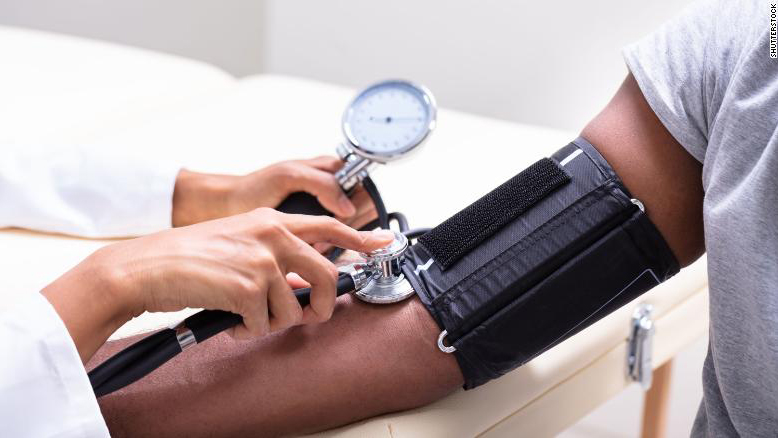I Take Aspirin and Benazapril Yet My Blood Pressure Continues to Rise What Can I Do

Blood pressure is one of the many measures of good health. Specifically, it relates to the amount of force needed to move your blood filled with oxygen, antibodies and nutrients through your body to reach all your vital organs. Maintaining your blood pressure at the optimal level is important for your overall health. A person with high blood pressure is more likely to experience a number of serious health issues, including heart attack, stroke and kidney disease.
Doctors or other health professionals measure your blood pressure anytime you visit your doctor's office or other medical facility. That alone should tell you the significance of healthy blood pressure. Fortunately, you can also monitor this critical function yourself at home, but if you want to be able to spot a potential problem, then you need to understand what your blood pressure levels mean.
The device used to measure blood pressure is called a sphygmomanometer, and it measures it in millimeters of mercury (mm Hg), which is a common type of scientific measurement for pressure. Even with the use of new digital automated blood pressure monitors, that standard measurement remains the same for blood pressure readings.
Blood pressure measurements include two different numbers that are written like a fraction. Systolic pressure, which represents the pressure in the arteries when the heart beats, is the number on top. Diastolic pressure, which represents the pressure in the arteries between heartbeats, is the number on bottom. The two numbers are evaluated together to determine if your blood pressure is normal, low or high.
Normal Blood Pressure vs. High Blood Pressure
The American Heart Association sets the guidelines for what constitutes normal blood pressure and high blood pressure, officially known as hypertension. Your blood pressure is classified as normal if the systolic pressure ranges from 90 to 120 mm Hg and the diastolic pressure ranges from 60 to 80 mm Hg. Elevated blood pressure occurs when the systolic pressure measures from 120 to 129 mm Hg, but the diastolic pressure remains below 80 mm Hg.
If your systolic blood pressure measures between 130 and 139 mm Hg and your diastolic pressure is between 80 and 89 mm Hg, you are considered to have stage 1 hypertension. Stage 2 hypertension occurs when the systolic pressure rises to 140 mm Hg or higher and the diastolic pressure measures 90 mm Hg or higher. If your systolic pressure rises above 180 mm Hg and your diastolic pressure goes above 120 mm Hg, it is considered a hypertensive crisis and requires immediate medical attention.
The Dangers of High Blood Pressure
Hypertension potentially leads to other health problems, so it's important to check your blood pressure regularly to detect it. Because it often doesn't have symptoms until it causes a hypertensive crisis, it's known as "the silent killer." In the most extreme cases, high blood pressure can lead to a heart attack, stroke and possibly even death from those and other conditions. Long-term heart disease can occur when your blood pressure remains high for a long time, especially after age 50. High blood pressure also affects kidney function, vision and your general physical health on a daily basis.
Treating Hypertension
Doctors generally offer a number of solutions to help you maintain your blood pressure at a normal level. The most common way doctors treat high blood pressure that is already classified as stage 2 hypertension is with medication. Daily medications that can help lower your blood pressure include beta blockers, diuretics, calcium channel blockers and ACE inhibitors.
If your high blood pressure is at a lower stage, your doctor may start by recommending you implement various lifestyle changes to help lower your blood pressure. Weight loss, exercise and healthy eating habits are just a few of the lifestyle changes your doctor may recommend, depending on your personal circumstances. These types of changes are also recommended, even if you take medication. You will achieve the best results by following the guidance of your doctor.
The Dangers of Low Blood Pressure
Much less attention is paid to low blood pressure, which is clinically known as hypotension, but it's also important to see a doctor if your blood pressure is abnormally low. While high blood pressure can often go undetected until it causes other health problems, low blood pressure often has symptoms that are impossible to miss. Signs of low blood pressure include dizziness, blurry vision, clammy skin, fainting, chest pain, balance issues and headaches.
In some cases, low blood pressure occurs for a temporary reason, such as pregnancy, dehydration or a medication that can be adjusted or changed. It can also be caused by various health conditions, including infections, poor circulation and diabetes. In the worst cases, it could indicate underlying heart problems, blood loss and serious endocrine problems.
Implementing a Healthy Lifestyle
If you establish healthy lifestyle habits, you may be able to control your blood pressure and improve your health in other ways as well. Maintaining a healthy weight is one of the best things you can do to regulate blood pressure, and following a healthy eating plan can help you achieve that. A diet that includes plenty of vegetables, fruits and low-fat dairy is important, and curbing sodium intake is crucial if you have hypertension. If you can add 30 minutes of aerobic exercise — even a brisk walk — into your day, this will also help with weight loss. Moderating your alcohol intake is another way to improve your weight, blood pressure and overall health.
Resource Links:
https://www.heart.org/en/health-topics/high-blood-pressure/why-high-blood-pressure-is-a-silent-killer
https://www.heart.org/en/health-topics/high-blood-pressure/the-facts-about-high-blood-pressure/what-is-high-blood-pressure
https://www.heart.org/en/health-topics/high-blood-pressure/understanding-blood-pressure-readings
https://www.heart.org/en/health-topics/high-blood-pressure/why-high-blood-pressure-is-a-silent-killer/know-your-risk-factors-for-high-blood-pressure
https://www.heart.org/en/health-topics/high-blood-pressure/the-facts-about-high-blood-pressure/low-blood-pressure-when-blood-pressure-is-too-low
https://www.heart.org/en/health-topics/high-blood-pressure/changes-you-can-make-to-manage-high-blood-pressure
Source: https://www.thehealthfeed.com/healthy-living/understanding-your-blood-pressure-levels?utm_content=params%3Ao%3D1668962%26ad%3DdirN%26qo%3DserpIndex&ueid=01ba1b05-24ba-4fa2-be85-45234437feba
Enviar um comentário for "I Take Aspirin and Benazapril Yet My Blood Pressure Continues to Rise What Can I Do"